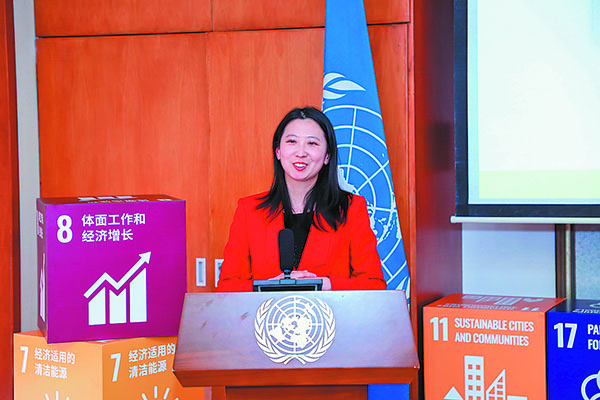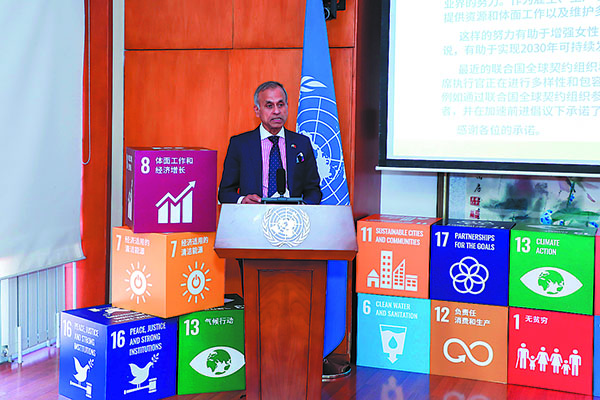Report is 'roadmap' to workplace equality in China


In commemoration of International Women's Day, the United Nations Global Compact, the world's largest corporate sustainability initiative, recently unveiled a new report titled Women at Work: Chinese Companies Taking Action on Gender Equality.
This global publication, available in both English and Chinese, serves as a comprehensive guide offering insights and best practices for advancing environmental, social and sustainable development goals, and their governance, with a specific emphasis on fostering gender equality within the workplace.
The report highlights the stark reality that despite many achievements, global economic development has failed to be inclusive, with women reaping unequal and limited benefits due to underinvestment in gender equality initiatives and a lack of gender-focused policies.
The study reveals that jobs created have not adequately facilitated women's participation in the labor force, and women still bear the burden of 2.8 more hours than men in unpaid care and domestic work. Additionally, the representation of women in managerial positions stands at a mere 28.2 percent, underscoring the pressing need for concrete goals and policies to be implemented by businesses.
UN statistics show that achieving gender equality in the labor market by 2025 could lead to a 26 percent increase in global annual GDP, amounting to $28 trillion.

The UN Global Compact emphasizes that companies play a pivotal role in ensuring women secure equal job and career advancement opportunities across the industrial spectrum, thereby gaining more economic empowerment. Liu Meng, head of the China Office at the UN Global Compact and one of those who participated in the research and writing of the report, reinforces this perspective.
She says that the publication released on International Women's Day aims to objectively showcase the current development status of women in Chinese companies and seeks to explore specific strategies and actions that businesses can undertake to enhance women's rights and empowerment.
The report presents practical case studies and stories from eight Chinese companies, examining perspectives such as equitable job opportunities, safe and healthy work environments and family-friendly workplaces. By showcasing concrete measures and successful practices in gender equality, it offers valuable practical references for both Chinese and global businesses and provides a useful guide for companies to promote gender equality.
Dan Thomas, chief of Communication and Strategic Events in the UN Global Compact, has also actively engaged in the research and writing of the report. He and his colleagues visited various Chinese companies, engaging in open discussions with senior and junior staff, both male and female, to address the challenges of establishing equal opportunities for women in their businesses.
"By supporting gender equality, men will also benefit. It's critical that all men join women in working on this important issue," emphasizes Thomas.
In 1984, the Englishman traveled around China for three months before attending university. "Back then, it was rare to see women doing certain tough, manual jobs in the United Kingdom. However, in China, I was struck by the level of gender equality in the workplace," he says, reflecting on that time.
"Forty years later, it's encouraging to see that the commitment to gender equality is still strong, and progress is happening in the new, modern and skill-based economy."
Siddharth Chatterjee, the UN Resident Coordinator in China, also attended the report's release ceremony on Friday.
He urged companies to go beyond measuring success solely by profits and encouraged all male leaders to elevate gender equality to a strategic level within their organizations.
He said that the report provides a roadmap, showcasing exemplary practices that are replicable, scalable and can guide companies in assessing their impact on gender equality.





































